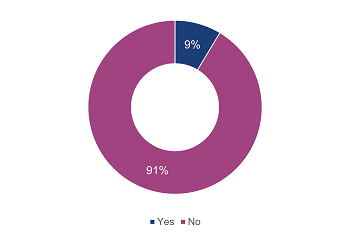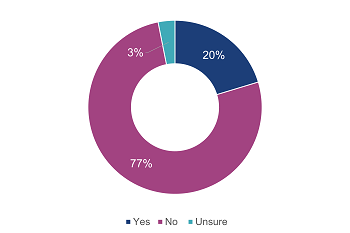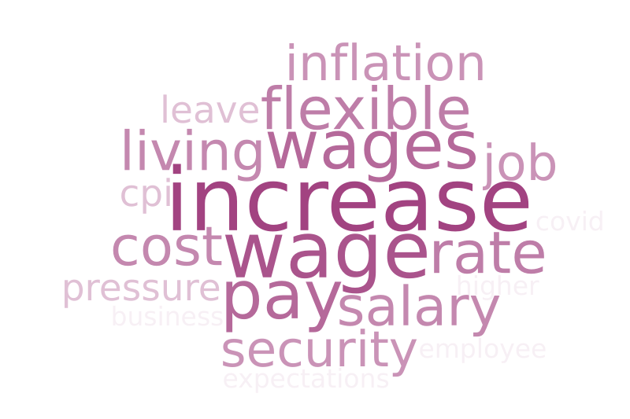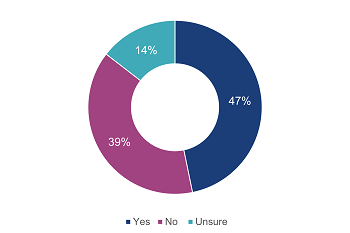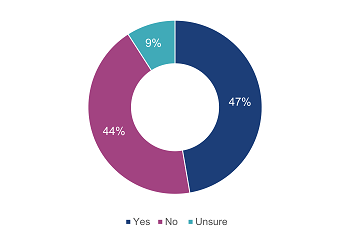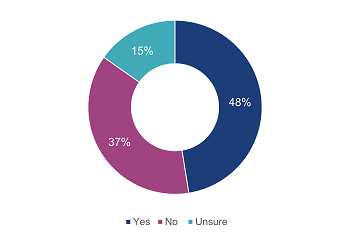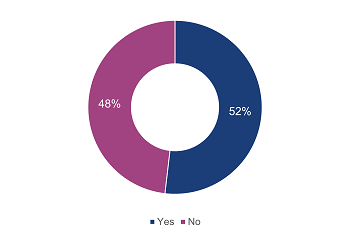
In the lead up to the 2022 Australian Federal Election, our national team ran a series of feedback sessions and surveyed our national clients. The results of our 2022 Federal Election Workplace and Industrial Relations Survey are in.
The survey findings reaffirm our insights into the key issues and trends across industries in the lead up to the Australian Federal Election:
- When it comes to industrial relations it is, to some extent, a case of “back to the future”;
- Wages is the big-ticket issue in bargaining; and
- Many businesses are treading water until the results of the election are known, whilst perhaps missing an opportunity to get on the front foot, particularly with respect to measures to prevent sexual harassment and wage theft.
The results of our recent 2022 Federal Election Workplace and Industrial Relations Survey of our clients suggest that, as we emerge from the pandemic, the industrial relations challenges are quickly returning back to normal. In other words, despite the unprecedented events of the past couple of years, the headline issues in industrial relations are the same as they have always been; with limited new ideas to address them.
Businesses are returning to their usual bargaining life cycle. While there are certainly some new challenges and opportunities on the horizon, our clients say their minds are most occupied by traditional industrial relations issues.
Two years ago, it would have been fair to describe the state of our social consciousness, including that of the business community, as one of collective panic. And perhaps rightly so. What followed was social and economic upheaval on a truly unprecedented scale. Curfews, prohibitions on leaving home even to work, travel restrictions and other measures resulted in swathes of the economy needing to entirely reconfigure themselves virtually overnight. Business and work immediately looked different. The economic impact has been equally immense.
And so, at the beginning of the current Australian Federal Election campaign, the expectation was that industrial relations issues would feature prominently in the conversation, if not dominantly. But that it is not what we have seen. Of course there has been much discussion on both sides of politics about addressing the rising cost of living. But even there, the emphasis has been shared between objectives to increase wages and also ease inflationary pressure.
One explanation for this might be the lack of detailed policy from the ALP around IR reform in many areas, coupled with the Coalition’s general reticence to enter that frame. Whilst many businesses have reported that they are adopting a ‘wait and see’ approach until further detail is known, opportunity presents in taking a proactive approach in matters such as bargaining, and implementing systems and processes to combat sexual harassment and wage theft.
A return to a normal IR rhythm
When it comes to enterprise bargaining, the survey results show that half of our clients who responded are operating under enterprise agreements which have passed their nominal expiry date. An overwhelming 91% of respondents indicated this was normal for them compared with pre-pandemic levels. Most interestingly, of those with enterprise agreements that have nominally expired, more than half have commenced or recommenced bargaining for them this year, with only 16% saying this was due to union pressure or request. Moreover, around three quarters of respondents say they did not did not put “pens down” on bargaining at the beginning of the pandemic.
|
Does your organisation have enterprise agreements which are nominally expired? |
Is this number higher than would have been normal prior to the pandemic? |
Did your organisation postpone or cease enterprise agreement negotiations which were ongoing at the beginning of the COVID-19 pandemic? |
This begs the question of what is driving the desire to bargain on the part of business? To some extent, it will simply be habitual to renegotiate expired agreements. But for those with a more identified purpose, our survey results are telling. Outside the realms of legislative reform that may result from a change in government, clients consistently reported a number of key IR issues that are keeping them up at night.
New bargaining, familiar challenges
Unsurprisingly, given the current inflationary pressure and economic indicators of more to come, wages are expected to be the key in upcoming enterprise agreement negotiations. This was overwhelmingly identified by the client responses to our survey. Whereas prior to the pandemic agreements would routinely be rolled over with as little as a 2% annual increase in the wage bill, in the current landscape even double that figure is likely to prompt rancour as a “real wage cut”.
Alongside wages, our clients identified more flexible work as of primary importance. Lessons learned from the pandemic can be expected to feature in the mix. On the one hand, employees have firm expectations about enhanced workplace agility. On the other, businesses understand the competitive edge provided by the capacity to nimbly and efficiently deploy their labour force. On both fronts there is scope for productivity enhancements to be unlocked by innovating businesses which can offset higher wage claims.
|
What do you think will be the key issues in bargaining in your next round of negotiations? |
Finally, and again as is has always been a key driver for businesses wanting to refresh expired agreements, nervousness is widely shared about the effect of protected industrial action, and the need to secure protection from it. Client responses to our survey clearly indicate that an increase in union aggression, both in the formulation of bargaining claims, and their pursuit of them, are fuelling this anxiety.
The important point in this is for businesses to carefully understand their bargaining strategy before taking the leap, and ensure their planning is adequate. Understand why you are bargaining, and what your business hopes to achieve. Of equal importance are adequate measures to ameliorate the risk of industrial action.
Changing legislative landscape
This is not to suggest that the major parties’ electioneering and policy proposals are not having any effect, and it is clear that industrial relations issues remain front of mind for the business community. Commentary from our clients in response to the survey has indicated a genuine lack of confidence to make significant business decisions until the result of the election is known. There are strong themes in the responses given: concerns about ALP reform concerning the use of casual workers; “same job, same pay” legislation; increased wage pressure; and IR reforms to concentrate union influence.
Certainly, planning and action on measures to prevent sexual harassment is one area where some preparatory steps could be taken now. Around half of the respondents to the survey indicated that they have not taken any steps to prepare for the potential introduction of a positive duty to eliminate sexual harassment, discrimination and victimisation, and half do not take proactive steps to prevent sexual harassment beyond having a workplace behaviour policy and training in place.
Given this is an area of some focus on both sides of the political aisle, businesses should quickly be moving to ensure they are ready for change in this space. One such step is to treat sexual harassment as a workplace health and safety issue and implement governance strategies accordingly (such as board reporting and implementing risk controls). Only 15% of respondents indicated that this is something their organisation is already doing.
The responses to our survey suggest that some businesses are content to take a ‘wait and see’ approach to potential legislative change. This reticence is understandable. There is, however, a case to be made that this uncertainty is actually a reason to proceed with implementing initiatives that are ready to go, rather than holding off. It may only get harder from here.
|
Have you taken any steps to prepare for the potential introduction of a Federal Positive Duty to eliminate sexual harassment, discrimination and victimisation? |
| Does your organisation take proactive steps to prevent sexual harassment, beyond having a Workplace Behaviour Policy and training in place? |
| Does your organisation treat sexual harassment as a WHS issue? |
Key contacts
Legal Notice
The contents of this publication are for reference purposes only and may not be current as at the date of accessing this publication. They do not constitute legal advice and should not be relied upon as such. Specific legal advice about your specific circumstances should always be sought separately before taking any action based on this publication.
© Herbert Smith Freehills 2025
Stay in the know
We’ll send you the latest insights and briefings tailored to your needs
